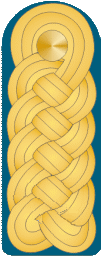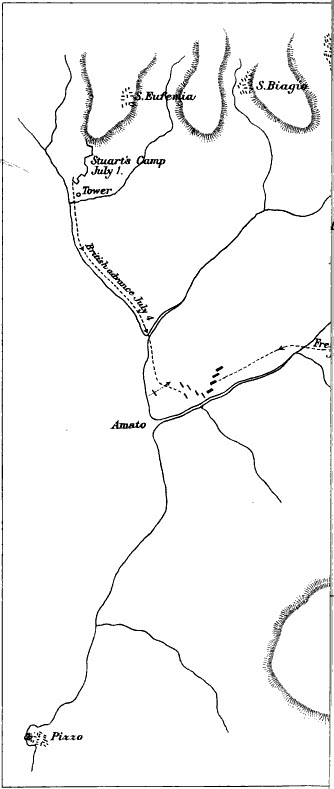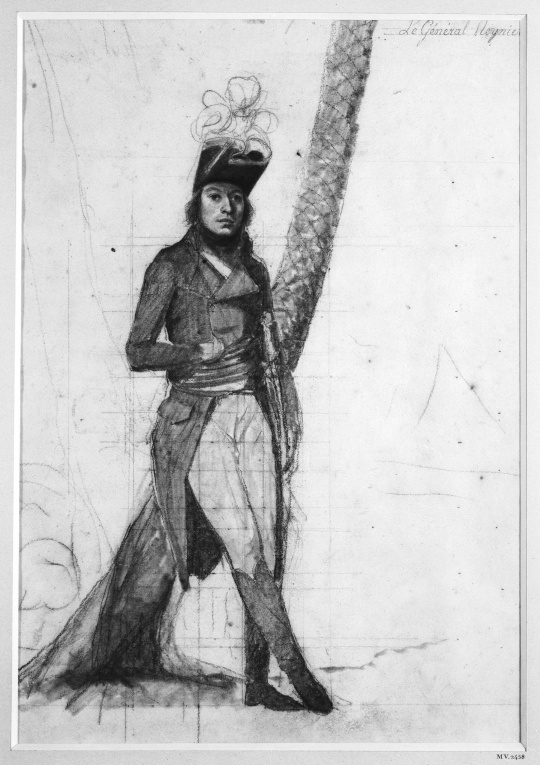|
Louis Fursy Henri Compère
Louis Fursy Henri Compère (16 January 1768 – 27 March 1833) was a French general of artillery in the French Revolutionary Wars and the Napoleonic Wars. Compère was born in Péronne, Somme. In 1794, he was promoted to ''chef de brigade'', the equivalent of colonel. On 1 May 1794, he was promoted to general of brigade. He was part of the Army of the Danube crossing into the southwest German states in 1799, and participated in the Battle of Ostrach and the Battle of Stockach. He was the brother of the General Claude Antoine Compère (1774–1812). Career He fought at the Battle of Verona on 18 October 1805 where his brigade of Gaspard Amédée Gardanne's division supported the initial attack of André Masséna's converged ''voltiguers''. Later his soldiers formed squares to drive off a counterattack by Austrian hussars. He also led his troops at the Battle of Caldiero on 29 to 31 October in the same year. He commanded one of Jean Reynier's brigades at the Battle of Mai ... [...More Info...] [...Related Items...] OR: [Wikipedia] [Google] [Baidu] |
Péronne, Somme
Péronne () is a commune of the Somme department in Hauts-de-France in northern France. It is close to where the 1916, first 1918 and second 1918 Battles of the Somme took place during the First World War. The Museum of the Great War (known in French as the ''Historial de la Grande Guerre'') is located in the château. Geography Péronne is situated in the old region of Santerre, home of the early French kings. It is located in the Somme valley. The autoroutes A1 and A16 pass close by. The national road, the N17, traverses the town. Demography History On a hill, dominating the Somme river and its lakes, Péronne was a well-fortified place during the early Middle Ages. The ramparts were built in the 9th century. All that remains today of the ancient fortress is the ''Porte de Bretagne''. Few towns have been as involved in the history of France, few towns so often devastated, as Péronne. Burned and pillaged in the time of the Normans; gravely damaged during the time o ... [...More Info...] [...Related Items...] OR: [Wikipedia] [Google] [Baidu] |
André Masséna
André Masséna, Prince of Essling, Duke of Rivoli (born Andrea Massena; 6 May 1758 – 4 April 1817) was a French military commander during the French Revolutionary Wars and the Napoleonic Wars.Donald D. Horward, ed., trans, annotated, The French Campaign in Portugal, An Account by Jean Jacques Pelet, 1810-1811 (Minneapolis, MN, 1973), 501. He was one of the original 18 Marshals of the Empire created by Napoleon I, with the nickname (the Dear Child of Victory). Many of Napoleon's generals were trained at the finest French and European military academies, however Masséna was among those who achieved greatness without the benefit of formal education. While those of noble rank acquired their education and promotions as a matter of privilege, Masséna rose from humble origins to such prominence that Napoleon referred to him as "the greatest name of my military empire". His military career is equaled by few commanders in European history. In addition to his battlefield successes ... [...More Info...] [...Related Items...] OR: [Wikipedia] [Google] [Baidu] |
People From Somme (department)
A person ( : people) is a being that has certain capacities or attributes such as reason, morality, consciousness or self-consciousness, and being a part of a culturally established form of social relations such as kinship, ownership of property, or legal responsibility. The defining features of personhood and, consequently, what makes a person count as a person, differ widely among cultures and contexts. In addition to the question of personhood, of what makes a being count as a person to begin with, there are further questions about personal identity and self: both about what makes any particular person that particular person instead of another, and about what makes a person at one time the same person as they were or will be at another time despite any intervening changes. The plural form "people" is often used to refer to an entire nation or ethnic group (as in "a people"), and this was the original meaning of the word; it subsequently acquired its use as a plural form of ... [...More Info...] [...Related Items...] OR: [Wikipedia] [Google] [Baidu] |
1833 Deaths
Events January–March * January 3 – Reassertion of British sovereignty over the Falkland Islands in the South Atlantic. * February 6 – His Royal Highness Prince Otto Friedrich Ludwig of Bavaria assumes the title His Majesty Othon the First, by the Grace of God, King of Greece, Prince of Bavaria. * February 16 – The United States Supreme Court hands down its landmark decision of Barron v. Mayor and City Council of Baltimore. * March 4 – Andrew Jackson is sworn in for his second term as President of the United States. April–June * April 1 – General Antonio López de Santa Anna is elected President of Mexico by the legislatures of 16 of the 18 Mexican states. During his frequent absences from office to fight on the battlefield, Santa Anna turns the duties of government over to his vice president, Valentín Gómez Farías. * April 18 – Over 300 delegates from England, Scotland, Wales and Ireland travel to the office of the Prime Minister, the Earl Grey, to cal ... [...More Info...] [...Related Items...] OR: [Wikipedia] [Google] [Baidu] |
1786 Births
Events January–March * January 3 – The third Treaty of Hopewell is signed, between the United States and the Choctaw. * January 6 – The outward bound East Indiaman '' Halsewell'' is wrecked on the south coast of England in a storm, with only 74 of more than 240 on board surviving. * February 2 – In a speech before The Asiatic Society in Calcutta, Sir William Jones notes the formal resemblances between Latin, Greek, and Sanskrit, laying the foundation for comparative linguistics and Indo-European studies. * March 1 – The Ohio Company of Associates is organized by five businessmen at a meeting at the Bunch-of-Grapes Tavern in Boston, to purchase land from the United States government to form settlements in what is now the U.S. state of Ohio. * March 13 – Construction begins in Dublin on the Four Courts Building, with the first stone laid down by the United Kingdom's Viceroy for Ireland, the Duke of Rutland. April–June * Apri ... [...More Info...] [...Related Items...] OR: [Wikipedia] [Google] [Baidu] |
Digby Smith
Digby Smith (born 1 January 1935) is a British military historian. The son of a British career soldier, he was born in Hampshire, England, but spent several years in India and Pakistan as a child and youth. As a "boy soldier", he entered training in the British Army at the age of 16. He was later commissioned in the Royal Corps of Signals, and held several postings with the British Army of the Rhine. After a career in the British Army Signal Corps, he retired and with a friend started a company selling body armour, followed by several years working in the telecommunications industry. After his second retirement, he lived for a while in Hanau, Germany, but has moved back to Britain. Originally writing under the pen name, Otto von Pivka, since his retirement from the military he has written another dozen books, venturing into narrative history with his ''1813: Leipzig : Napoleon and the Battle of the Nations'' in 2001 and ''Charge!: Great Cavalry Charges of the Napoleonic Wars'' ... [...More Info...] [...Related Items...] OR: [Wikipedia] [Google] [Baidu] |
Legion Of Honor
The National Order of the Legion of Honour (french: Ordre national de la Légion d'honneur), formerly the Royal Order of the Legion of Honour ('), is the highest French order of merit, both military and civil. Established in 1802 by Napoleon Bonaparte, it has been retained (with occasional slight alterations) by all later French governments and regimes. The order's motto is ' ("Honour and Fatherland"); its seat is the Palais de la Légion d'Honneur next to the Musée d'Orsay, on the left bank of the Seine in Paris. The order is divided into five degrees of increasing distinction: ' (Knight), ' (Officer), ' (Commander), ' (Grand Officer) and ' (Grand Cross). History Consulate During the French Revolution, all of the French orders of chivalry were abolished and replaced with Weapons of Honour. It was the wish of Napoleon Bonaparte, the First Consul, to create a reward to commend civilians and soldiers. From this wish was instituted a , a body of men that was not an order of ... [...More Info...] [...Related Items...] OR: [Wikipedia] [Google] [Baidu] |
Napoleon
Napoleon Bonaparte ; it, Napoleone Bonaparte, ; co, Napulione Buonaparte. (born Napoleone Buonaparte; 15 August 1769 – 5 May 1821), later known by his regnal name Napoleon I, was a French military commander and political leader who rose to prominence during the French Revolution and led successful campaigns during the Revolutionary Wars. He was the ''de facto'' leader of the French Republic as First Consul from 1799 to 1804, then Emperor of the French from 1804 until 1814 and again in 1815. Napoleon's political and cultural legacy endures to this day, as a highly celebrated and controversial leader. He initiated many liberal reforms that have persisted in society, and is considered one of the greatest military commanders in history. His wars and campaigns are studied by militaries all over the world. Between three and six million civilians and soldiers perished in what became known as the Napoleonic Wars. Napoleon was born on the island of Corsica, not long af ... [...More Info...] [...Related Items...] OR: [Wikipedia] [Google] [Baidu] |
General Of Division
Divisional general is a general officer rank who commands an army division. The rank originates from the French (Revolutionary) System, and is used by a number of countries. The rank is above a brigade general, and normally below an army corps general. The rank is mostly used in countries where it is used as a modern alternative to a previous older rank of major-general or lieutenant-general. Specific countries Brazil The Brazilian rank ''general-de-divisão'' translates literally as "general of division", and is used by the army. This rank is equivalent to lieutenant-general. The air force equivalent is ''major-brigadeiro''(literally "major-brigadier"). The navy equivalent is ''vice-almirante'' (literally, vice-admiral) Chile The Chilean rank ''general de división'' translates literally as "general of division", and is used by the army. This rank is equivalent to lieutenant-general. The air force equivalent is ''general de aviación'' (literally "aviation general"). Thes ... [...More Info...] [...Related Items...] OR: [Wikipedia] [Google] [Baidu] |
Battle Of Maida
The Battle of Maida, fought on 4 July 1806 was a battle between the British expeditionary force and a French force outside the town of Maida in Calabria, Italy during the Napoleonic Wars. John Stuart led 5,236 Anglo-Sicilian troops to victory over about 5,400 Franco-Italian-Polish troops under the command of French general Jean Reynier, inflicting significant losses while incurring relatively few casualties. Maida is located in the toe of Italy, about west of Catanzaro. In early 1806, the French invaded and overran the Kingdom of Naples, forcing King Ferdinand I of the Two Sicilies and his government to flee to Sicily. The Calabrians revolted against their new conquerors and Stuart's expeditionary force tried to exploit the unrest by raiding the coast. While ashore, the British encountered Reynier's division and the two sides engaged in battle. The 19th-century historians presented the action as a typical fight between French columns and British lines. This view of the battle ... [...More Info...] [...Related Items...] OR: [Wikipedia] [Google] [Baidu] |
Jean Reynier
Jean Louis Ebénézer Reynier (14 January 1771 – 27 February 1814) was a Swiss- French military officer who served in the French Army under the First Republic and the First Empire. He rose in rank to become a general during the French Revolutionary Wars, and led a division under Napoleon Bonaparte in the French campaign in Egypt and Syria. During the Napoleonic Wars he continued to hold important combat commands, eventually leading an army corps during the Peninsular War in 1810–1811 and during the War of the Sixth Coalition in 1812–1813. Background and education Reynier was born on 14 January 1771 in Lausanne to a protestant family, the son of Jacques François Reynier, a physician, and Caroline Chapuis. Through his father he was descended from French Huguenots from the Dauphiné who fled to Switzerland after the revocation of the Edict of Nantes. His brother Jean-Louis-Antoine (1762–1824), a naturalist and archeologist, held government posts in the French administrati ... [...More Info...] [...Related Items...] OR: [Wikipedia] [Google] [Baidu] |
Battle Of Caldiero (1805)
The Battle of Caldiero took place on 30 October 1805, pitting the French ''Armée d'Italie'' under Marshal André Masséna against an Austrian army under the command of Archduke Charles, Duke of Teschen. The French engaged only some of their forces, around 33,000 men, but Archduke Charles engaged the bulk of his army, 49,000 men, leaving out Paul Davidovich's corps to defend the lower Adige and Franz Seraph of Orsini-Rosenberg's corps to cover the Austrian right against any flanking maneuvers. The fighting took place at Caldiero, 15 kilometres east of Verona, during the War of the Third Coalition, part of the Napoleonic Wars. Preliminaries By mid October, Marshal André Masséna, a seasoned French general, who had fought the Austrians in Lombardia before during the campaign of 1796–1797, was waiting for developments on the main theatre of operations in Bavaria.Pigeard, 171 On 18 October, Masséna won a bridgehead on the east bank of the Adige River in the Battle of Verona. ... [...More Info...] [...Related Items...] OR: [Wikipedia] [Google] [Baidu] |

.jpg)
_1938.jpg)





